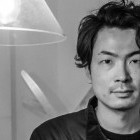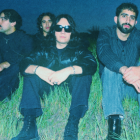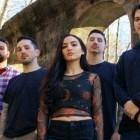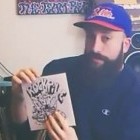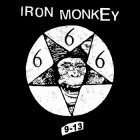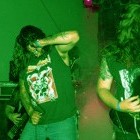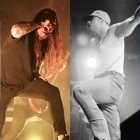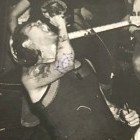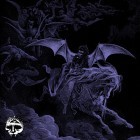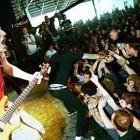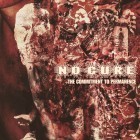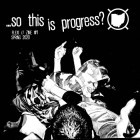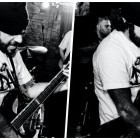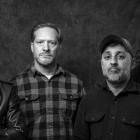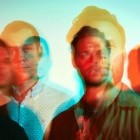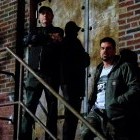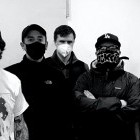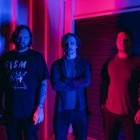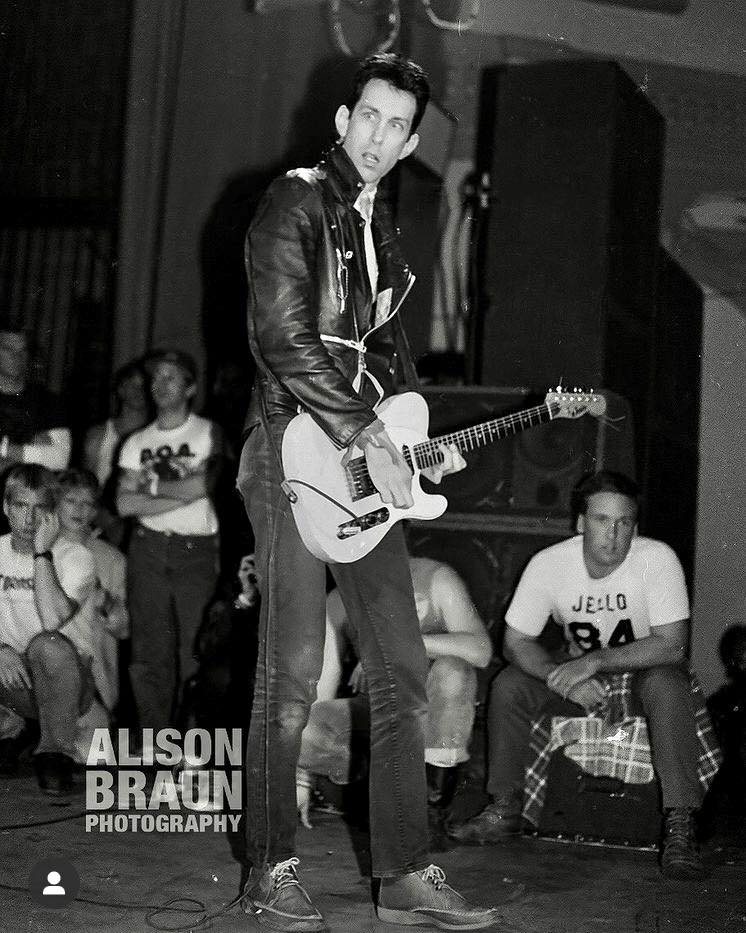
I recently spoke to East Bat Ray from Dead Kennedys on the eve of the new mix of the band’s bona fide classic album, Fresh Fruit for Rotting Vegetables.
We discuss his and the band’s extensive history and what it’s like to collaborate with a non collaborater. A Hardcore Conversation continues.

Hello, is this East Bay Ray? How you doing? This is Anthony, I do interviews called A Hardcore Conversation on No Echo.
No echo?
Yeah, I guess you are actually kind of a fan of echo though right?
[Laughs) Yes I am, of Echoplex.
So you want to dive in? I have a few questions for you. Obviously, I know you want to talk about the new Fresh Fruit for Rotting Vegetables remix. I'm also going to ask you a few other things before that if that's okay.
Okay, but before we go on, nowadays, when people say remix, it kind of means where they, you know, add samples or a drum machine and parts. We actually call this a 2022 mix. Because basically, nothing has been added and nothing has been taken away. It's just, you know, same musicians underneath, playing what we play on the original mix.
That sort of brings me to one of my questions, I was gonna ask you later. Not to drop a loaded bomb, but Jello Biafra of course, has not been happy about this and he suggested that maybe it would have been more interesting to do a remix, like what you just sort of touched on. How do you feel about that?
Well, he never proposed it.
Ah, okay. Well, that's a good point.
He never proposed it, you know?
That's a very good point there. So we already started but I always start all my interviews off with a variation of: You are East Bay Ray, guitar player from Dead Kennedys, correct?
Yes.
So what was it like growing up in Oakland back then back in the days when you were younger?
Well, actually, I didn't grow up in Oakland. I grew up in a suburb about 20 minutes south, Castro Valley. Near an area near Hayward. You know, it was a very early California suburb. Behind our houses was apricot orchards, that became more houses. So yes, I was born and raised in California and I'm proud of my California suburban culture.
Nice. Is it true, you're originally going to be an architect at one point?
Yes, that's true. Actually, my mom wanted me to be an architect. And we had the Frank Lloyd Wright books around the house. Actually, my dad designed the house we lived in, which was kind of very mid century modern. But, you know, I took a couple of years of architecture classes in school.
I learned all this stuff, but by the end of it, you know, you had a kind of like a senior project, and they gave me these parameters and, of course, I wanted to design like Frank Lloyd Wright, but the parameters, you kind of ended up designing a suburban tract house. Then I realized I don't think architecture's for me.
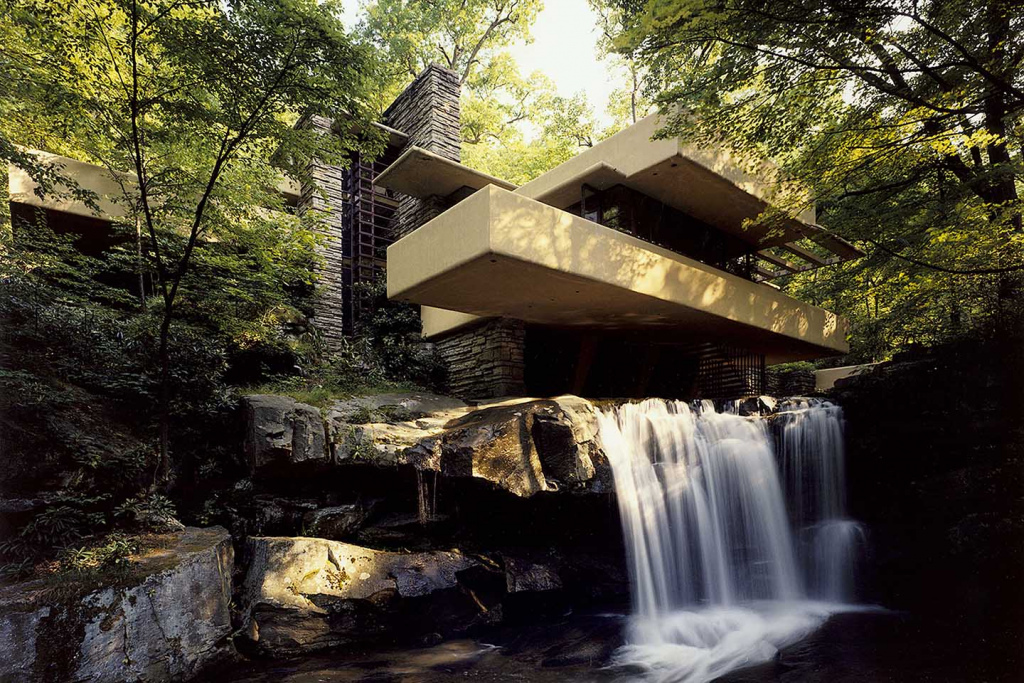
I hear ya. So, your parents, at least it says online, your parents were also into blues and folk music, and then maybe they helped start your interest in music. Is that perhaps true?
Yeah, right. My dad had a huge 78 record collection. He had a lot of Delta Blues, these records are from the '30s and '40s. He started collecting music as a preteen and as he got older, he got into Duke Ellington, Count Basie and stuff like that. Actually, one time he took my brother and I to see Lightning Hopkins. Which was really cool to see him.
Then my mom liked Pete Seeger and the Weavers and stuff like that. So I find out that I had good music at home. I thought it was normal, right?
[Laughs] How did you start playing guitar?
Oh, a friend of my brother and I, we went and saw the Rolling Stones. We were very young and we had our dad drive us and drop us off and pick us up afterwards. And it was, it just went crazy. So we came back. I got guitar lessons and my brother chose to do drum lessons.
Your brother played drums? Did you have any bands with him?
Yeah, we actually had a band in high school. So we played and we went through different phases. You know, at one point we were a blues band and then another point we were a psychedelic band [laughs].
So you guys could have been like the punk Van Halen brothers if you would have brought him into Dead Kennedys?
[Both laugh] Possibly!
That's pretty cool. Do you know what year that was that you saw the Stones?
No, I don't. So many decades in my life, it was the last millennium. Which one sounds older, the last century or the last millenium?
I know, right? Either way. But obviously, it's pretty clear that you have some surf and rockabilly elements to your style and perhaps even some Ennio Morricone, like spaghetti westerns.
Oh yeah, right, I do.
How did that happen? How did you get all those sorts of influences?
That I don't know, actually, I mean, it was odd. It's not that I actually listened to surf music that much but I think all the older teenagers in the hood, it was on the radio, in the air, so to speak. The rockabilly comes from Scotty Moore and the Elvis Presley Sun sessions. Like "Mystery Train" is one of my all time desert island songs. And that's actually one of the reasons I got into Echoplex was Scotty Moore, he has that slapback echo that I just love. And then Syd Barrett and the first Pink Floyd was the other reason.
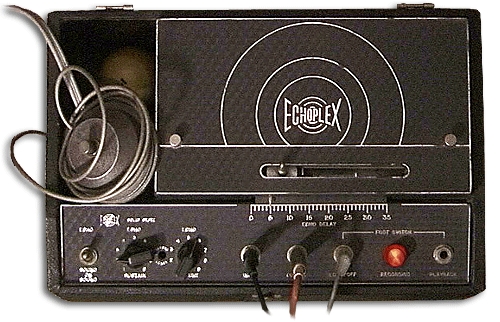
Interesting, especially given the punk supposedly anti stance on bands like Pink Floyd. Although, obviously, early Pink floyd is different thing.
This was the early Pink Floyd. The Pink Floyd of the '70s was a different band that didn't do as much for me.
I hear you. So, with those influences how'd you end up getting interested in punk?
Well, I've always liked rock 'n' roll. I mean, you know, my sister was a big Ray Charles fan. So I heard that and the other kids in the neighborhood, I don't know. I wasn't going to listen to Duke Ellington, or the Weavers or my parents music. Now I appreciate them though.
So yeah, I played guitar in a bar band. I was doing covers and I wanted to get out of that. I wandered into the Mabuhay Gardens, the Fab Mab, which was kind of the CBGBs of San Francisco. I saw the Weirdos from LA and the little hairs on the back of my neck stood on end. So I said, This is what I want to do. So I put an ad in the paper and, you know, Biafra came along and [future Dead Kennedys bassist] Klaus [Flouride] came along and we started actually playing in my garage.
So that's how you met everybody was from an ad, probably in the Recycler?
Yeah, right. Also I think I also put 3 by 5 cards in the music stores. Like Rasputin's and Aquarius.
Do you remember what your ad said?
Someone scanned it and it's someplace online. I have a copy of it someplace but I don't know where it is.
So maybe I can find it. That's cool. So, Biafra calls you. Do you remember him calling you the first time? Did he seem like weird or normal, or was he just like some guy or were you like, Holy shit, this guy?
No, I mean, he's very talented and a hard worker. I mean, the thing is, I was actually working with two singer songwriters. This was at my house, just acoustic guitar type stuff just to see what we'd come up with and working with both to see which one would develop and the other guy didn't show up one day. So it's like, okay.
Ah. Wasn't it wasn't Andy Warhol or Woody Allen who said something like, 98% of success in life is showing up?
[Laughs] Exactly! That's true. And you know, everybody in Dead Kennedys, we had the work craftsmen ethic, you know, don't let stuff slide and it’s just a matter of respect for other people.
Yeah. So the first two guys who called you were Biafra and Klaus right off the bat?
No, they were not the first two people that called me. No, there were people, I don't remember you know, I went through a bunch of people but it ended up being Biafra and Klaus and then we can actually have a rock band, we just needed to find a drummer.

Did you guys talk about like, Okay, this is gonna be a punk band or whatever?
Oh yeah, absolutely. I think that was in the ad. The Weirdos were inspiration and you know, at the time there was the Sex Pistols and the Ramones and all that. It was like, this is what I want to do and I ended up doing it. And my goal really was like, I want to have the best punk band in San Francisco. That was my goal.
That's actually a pretty lofty and ambitious goal for back then, you know. I'm not even being sarcastic. In the punk world like, We wanna be good was probably very ambitious compared to most people trying to form punk bands at the time. You know?
Oh, well right, I wanted to do music. To me, I'm very political myself. Very liberal, progressive. I've worked with my parents handing out pamphlets for discrimination back in the day. Redlining, my parents worked on that and I picked up on that and you know, leather jackets and jeans are cool.
But, you know, fashions are cool but I wasn't doing it for the fashion or just to be obnoxious. I was doing like, this is what rock is music supposed to be. It's supposed to be a little bit threatening, scary and full of a lot of energy, as opposed to say, "The Piña Colada Song."
Yeah. Nothing wrong with that song though! Did you guys have the name early on and how did you come up with that?
The story goes, an aquaintance of Biafra's, back in Colorado had the name but no band. So he brought it in and it was put on. And then when we had the band we used that guy's name. I don't know. I used to know the name of the person but it's been so long I don't remember.
Did he ever hassle you guys about it? Like, that's my name or whatever?
No, no. I think he was just proud that somebody's going to use it. It was different back then. You know, I mean, because it was shocking back then, it's not so much shocking now. Because there were a lot of people around that knew the Kennedys, not knew them personally, but the Kennedys were a thing. And actually, in the band, the name is actually not to dis them, it's more of a comment on the death of the American Dream.
When John F. Kennedy got elected, there was this surge of hope and change coming and opportunity that people could have. And then you know, he got assassinated, Robert (Kennedy) got assassinated and Martin Luther King got assassinated. Kind of the American Dream kind of collapsed into cynicism and Nixon.
I remember, my father was a classic liberal, a collegiate kind of guy, and he was actually kind of upset about the name when my brother started bringing home you guys' records back in the '80s.
Back then it's like, how can we be punk, you know, outrageous. But now, when we do tours and shows, two thirds of our audience are young and you know, the Kennedys are a historical figure from last century, last millennium.
So you said that you've been political, left leaning, basically your whole life. Did you guys talk about the imagery and the politics about that? You guys all wanted that to be part of the band, like early on? Or did that also just kind of happen?
Well, I mean, actually, originally in the Dead Kennedys, our thing was like, think for yourself. So we didn't really, I mean we did benefits and concerts and stuff but we didn't want to have songs that told people what to think, if that makes sense. More think for yourself type stuff. I remember the student benefits, the railroad strike. I can't remember, so many. So many, Rock Against Racism. That's the kind of stuff we do.
But we didn't have any illusions that a rock band was going to become a political force and change the world. We can make comments and people can listen to it, but it's people, it's got to come from the street out. People that think some rock singer is gonna solve all their political problems needs to read a book.

Right. Although you guys obviously got on the, you can say right or wrong radar when eventually Biafra gets arrested and stuff like that, with the HR Gieger artwork from Frankenchrist. So somebody was paying attention.
Yeah, that might've crossed a boundary there.
[Laughs] Yeah. So in terms of the imagery and stuff like that, how did you guys meet Winston Smith, and who originally designed the DK logo?
[Laughs] Well, the original concept for the DK logo, I came up with. In the sense that I put four pieces of tape on my guitar, the four lines, which is what people spray painted graffiti, right? That was in 1979 and there's a photo of it.
Apparently there's people walking around taking credit that they had the DK logo idea all by themselves. I'm a big believer in collaboration but apparently, some people aren't. And then I actually had an armband and actually Klaus found a photograph, I had an armband with the DK logo on it in 1979 which is a year before the fine art version was made. And I understand there's been people who say otherwise, or basically that's a lie.
Well, yeah, I was gonna ask you about that. I read in the new liner notes where you said that you had designed it and then I also read in Biafra's statement that he says that he designed it too. So I don't know but...
Well, I have 1979 photographs.
So, you have proof, yes.
What Biafra is saying is a lie. And also, I think at the beginning of his thing, he talks about how he's left out of the process. That's a lie. He was sent audio files last year or, I don't know, it's been covid, it's been a long process, and he never ever, ever sent a comment back. I think in the thing he says my guitar is too low.
So he goes public and does an ad hominem attack on me when he could have sent sent an email. How is doing an ad hominem attack on me punk?
True, yeah, I hear you on that. Okay, so speaking of punk, how did your parents feel about punk rock and were they supportive of it and specifically of you playing it?
Actually, my mom passed before the band started but my dad he never came to see me play, but he was proud that I was making (a living) being a professional musician. When he was a kid, a teenager, he used to go into Jazz clubs here in Oakland and they were segregated back then. Plus he was underage, but he would go in the backdoor with the musicians and listen to black music.
So he loves musicians, and then later later on in life, he had to go on dialysis and so sometimes he'd be next to a young kid and they'd find out and he said, "You know, now that I'm retired, I'm getting famous as being East Bay Ray's dad!" and he would get autographs from me for the other young people in the dialysis unit. He was proud.
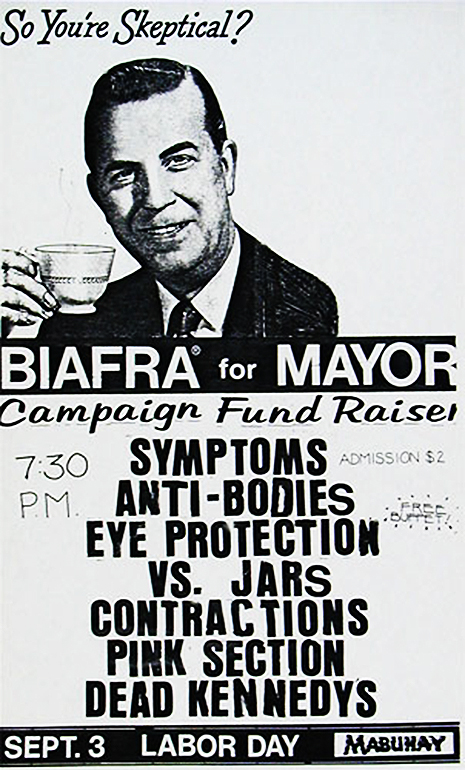
Yeah, that's cool. So, when Biafra runs for Mayor of San Francisco in '79, was that just a publicity stunt to maybe publicize the band or do you think he was really trying to win and become mayor of San Francisco?
Oh, it was more of an art performance piece. I forget, I think it was in the car, we were in a car and somebody said, you should run for mayor! And a little light bulb went off over the head of Biafra. So, this was performance art.
We did some benefits and he did some speeches and ultimately, he came in third, which kind of shocked us. And, you know, he's a good front person. He's a good politician.

Yeah, no, I hear you. Used car salesman, politician, frontman, you know, it's all kind of...
Skills that I don't have [laughs].
So, DKs pre-dated hardcore but you were also one of the bands that kind of helped bridge the gap in terms of your speed, and intensity and then you guys put out In God We Trust, Inc., which was really fast. Was that a conscious decision on you guys's part to be more hardcore, and go in line with that kind of scene, or was that just what you were doing?
Yeah, well, you know, Fresh Fruit... has all sorts of different sounds. You know, like, "Forward to Death" is hardcore. "Drug Me" is super fast. But since it's so fast, it's not that hard. It kind of skidded across the surface. There were a lot of bands out that had kind of a faster, harder sound and we thought, okay, let's do that. And that was In God We Trust.
Then, we went on to Plastic Surgery Disasters, which is our more psychedelic record, which is my favorite favorite record. Because then that kind of combines hardcore with the psychedelic.
Yeah, definitely. So, I was thinking about this when I was trying to get some questions together. I'm sure you're aware of the Big Four of thrash metal, you know, like Metallica and Megadeth, and Slayer and stuff.
If there was a big four of hardcore in terms of bands that mainstream people knew about or like, you know, my parents knew DKs, Black Flag, Circle Jerks, Suicidal Tendencies, maybe also Minor Threat. So to me that would kind of be the Big Four (or 5) of hardcore, would you agree? Disagree?
Oh, that's for rock critics to decide. I listen to music and I just do a variety of music. I don't know. How do you define hardcore? How do you define punk? People ask me like, Well, what do you think about Green Day and that pop punk stuff? And I said, well, actually, you know, back in the day, there was the Undertones and the Buzzcocks. And you know, I said that I love the Undertones and I love the Buzzcocks so it's not really, that was one of the flavors that punk had come in. It's always been there.
Well yeah, the Ramones are obviously for sure (pretty poppy).
Yeah right, for sure. The classics.
Alright, so do you remember playing a show in the Kensington section of Philly in '82 at the Starlight Ballroom?
[Laughs] Were you there?
I was not there. That was like a year or so before I started going to shows so I was not there but friends of mine were.
You lived in Philadelphia?
My brother went to Temple University and we used to go to shows there before that so I was in Philly a lot but I didn't personally live there. From what I know, there were some hostile locals and somebody actually tossed a bomb at the people outside the venue. Were you aware of what was going on?
Not a bomb, like an M80 or whatever.
I heard it was like a pipe bomb or something that had BBs or something in it and there was shrapnel and stuff like that. I don't know but that's what I heard.
That sounds like a hyperbole exaggeration. I've not heard that. But I understood it was, also the fact that I don't think anybody got hit by shrapnel, that it was an M80. Am I using the right term?
Yeah, no, I know what you're talking about. That's like the big firecracker that actually can do some damage, right?
Yeah, what I understand somebody threw one at the door and they closed and locked the door for a little bit. They didn't like outsiders being in that neighborhood.
Yeah. Apparently there was a Minor Threat show out there where Ian MacKaye got run over or hit by one of the locals standing outside talking to Al from SSD.
I'm not surprised. It was very old school Philly hood, but the hood was Caucasian.
I hear you. So they did not like you guys but you guys played the show, everybody played right, as far as I know?
Yeah, we played the show and I remember there was no air conditioning and I believe it was summer so it was like a sweatbox.
No shows on the East Coast had AC back then, even like serious real venues. No AC and then no heat in the wintertime.
Really?
Yeah! I used to go to shows in New York City too and it was the same situation even at big places like the Ritz. They didn't have heat or AC either.
Oh, really? Legitimate places? Kennsington Hall I can understand, a rental hall off in the boondocks. Interesting. I didn't know that.
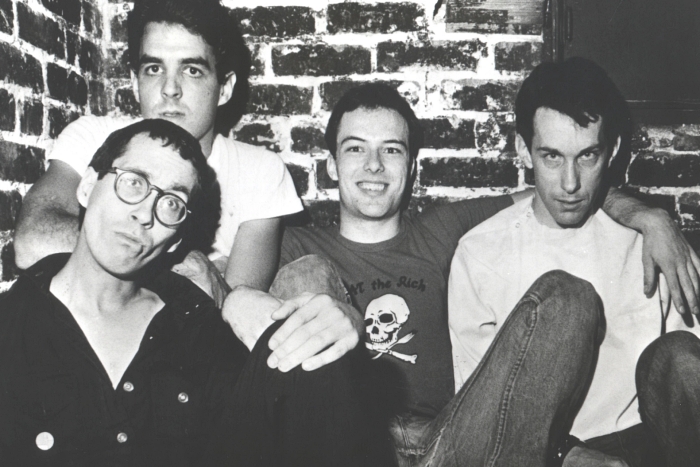
So then Frankenchrist comes out. We talked about that a little bit already, and obviously that had the Gieger painting ("Penis Landscape") as the insert. Did you guys have any idea that that was going to be a problem when you were talking about using it? I think Biafra said originally he wanted that to be the cover and you guys kind of argued about that or something?
Yeah, he originally wanted that to be the cover and we vetoed it, well we voted him down because we knew it was crossing a line. And back then, I was a partner at Alternative Tentacles and I was the one that actually did the first single ("California Uber Alles"), got it pressed and distributed. So I'm actually the one that knew how to run a record label and Biafra was like the A&R guy.
But anyway, it's like, when you do vinyl, what you need to do is you need to print up a whole bunch of covers on cardboard, before you press the records. They need to be printed and ink dried, and then they stick them in a machine, then if you buy a whole bunch, you get a cheaper rate. So maybe you'll order 5000 covers, but then only do a vinyl run of one or 2000. You know, and just keep the covers around in case you need to make more. It's more cost effective that way.
So back then it was like, if this goes south we're gonna be stuck with thousands of dollars of pieces of cardboard that just had to be destroyed so let's put it on a poster (instead) so that if somebody objects it can be pulled out. So it just was the right decision. The problem, the issue that really came is that the person that bought it that triggered the case was a minor. That was the problem. It was a minor. And that's what triggered it and you know, that's a much more complex question. You know, what is free speech when it comes to a minor?
Right. But I mean, you guys didn't sell it to that minor. You sold it to the distributor who sold it to the record store who sold it a minor.
Yeah, but the buck stops with artists. I mean, we took responsibility, well Biafra in particular took responsibility. I think the case actually happened after, in the later '80s, like a couple years after the record came out. I don't know all the legal stuff there but he became the point person for that.
Actually, I think in '86 I turned over my half of the partnership to Alternative Tentacles and then I took over the Decay Music, which is our band entities. Because the problem is, it was a conflict of interest. A record label has one goal and then the artist has another goal. That's a conflict of interest. So my idea was like, Okay, Biafra will be the record label and I'll represent the band and that will avoid us making conflict of interest decisions. However, it didn't work [laughs].
Did he buy you out of Alternative Tentacles or did you just say I'm quitting the the label?
No, there was no, I don't remember. Alternative Tentacles kind of ran like a nonprofit. So I don't remember anything like that but it fully changed from a partnership into a sole proprietorship.
Because I was reading the SST Records book (Corporate Rock Sucks: The Rise and Fall of SST Records) recently and it talks about Chuck Dukowski and all the partners there getting bought out by Greg Ginn. I guess there was actually money behind the scenes at that label, even though they didn't pay any of the bands.
Oh, really? No, I didn't know that. Yeah, I mean, like I say, at that time it was kind of just running as a nonprofit, we weren't making money at it we just were distributing our stuff and other people's stuff.
So anyway, what happened is the trial and the poster got pulled, just like the other band members, you know, Klaus, DH and I predicted and then it's like, Oh, we could have put a sticker on it. So there's a sticker on it now but back then because of the controversy you had to write in and you could get the poster mailed to you.
Does it come with it now? It's still in press on Manifesto right, does it come with the poster?
I think so, yeah. But it has the sticker on it. That was the problem, the thing that triggered the case was that the minor female who was buying it, there was no warning, no parental warning.
I mean, the name of the band could have been kind of a warning that it might be kind of incendiary stuff a little bit, you know what I'm saying?
Yeah. I don't know the exact story but she bought the record and then her mom saw it. (laughs) That's where things went south. I don't know, the kid didn't initiate the lawsuit, it was a parent. For all we know, she may have seen penises before, we don't know.
So you guys were already broken up by the time that happened then?
Yes we were. Actually we decided in January of '86 that we were going to do one last record and break up. And the last record, which we recorded in 1986 was Bedtime for Democracy. We did that but we'd already decided to break up but we didn't announce it then. Then, think it may have been released about the same time the court case came down. So yes, it had absolutely nothing to do with us breaking up.
So why did you guys decide to break up?
Musical differences? That's the standard answer. When the band started and we did our best music, it was a collaboration and then somebody decided that they were doing it all and it was not a collaboration anymore. And now, they think they did all the collaborative songs too. It's like, "Oh, okay, so there wasn't a collaboration."
Where's your classic songs post (DKs)? You know, like, Lou Reed was in the Velvet Underground, and he has classic songs after Velvet Underground. Iggy Pop was in the Stooges, he has classic songs as Iggy Pop. So where's yours? Oh maybe Dead Kennedys was a collaboration. Maybe one person didn't write all the music. It's kind of hard to work with a person that has that attitude. So that's kind of why the band broke up.
Yeah, I hear ya. Did you guys tour for that album or did you not?
No, we did not tour for Bedtime for Democracy. We were playing some of the songs. I think our last shows were spring of '86 and we were playing the songs because we already wrote them and learned them, we just hadn't recorded them. I think, I'm not sure exactly when it was recorded and all that. But some of the songs were kind of like just leftover stuff from previous sessions that we didn't use.
Gotcha. Alright. So this brings me to the topic at hand here. You guys have the remix, or the new mix of Fresh Fruit... done by Chris Lord-Alge, I'm not sure how to pronounce his last name?
Lord algae.
Ah, like, like the water plant. Okay. One of my first questions about that is how did you guys still have the master tapes and and what kind of condition were they in?
Well you know, I'm the one that has that, has all the stuff. I have all the tapes. I have the track sheets from the sessions that are in my handwriting. This is why the record is credited to Norm, Jello Biafra and East Bay Ray because I did all the work. Norm was the cat, he did an excellent job as the Cat.
Yeah, they tend to be good at that, I hear you.
So yeah, it actually was quite a project. Previously, Klaus had had the 16 track set for the digital so we had it in digital file form. However, originally Klaus and I were very leery of doing a new mix of the record because generally those don't do well. But everybody in the band thought that, you know, when we made "Fresh Fruit", we did it ourselves and we thought it was great at the time, but we really didn't know a whole lot. And soon afterwards we realized that it was a little bit boxy sounding.
However, you know, the playing is great, and the songs are great and that's what matters, ultimately. So when we sent it to Chris Lord-Alge to do like a quote, an audition, a tryout, just to see if it was worth doing the whole thing, we found out that the guy that did the transfer did not document which things were on which track. So anyway, Chris Lord-Alge is like, okay, this is good, this is like a fresh take on Fresh Fruit..., so to speak.
So he spent months going through the tracks and listening and actually I have to hand it to Klaus, he put the original mix up and he was able to pick out which, because there's like multiple takes of things. Like which one was actually used in the final mix. So that took a long time. Then it was sent to Chris Lord-Alge. Now you have to understand the reason this is delayed so long is because of COVID. So it actually gave Klaus and I a project to do at home with COVID.
But it was tedious, to be honest, tedious work. And then we couldn't be in the studio with Chris Lord-Alge, which would have made things much more fun and things going faster. And to be honest, I mean, probably a little better results. You can't sit there and say, try it this way, try it this way, let's go this way. He'd have to make a mix and send it to us. Klaus and I would have to listen to it and we'd have to send those back. It just took a long, long tedious time. It's done now.
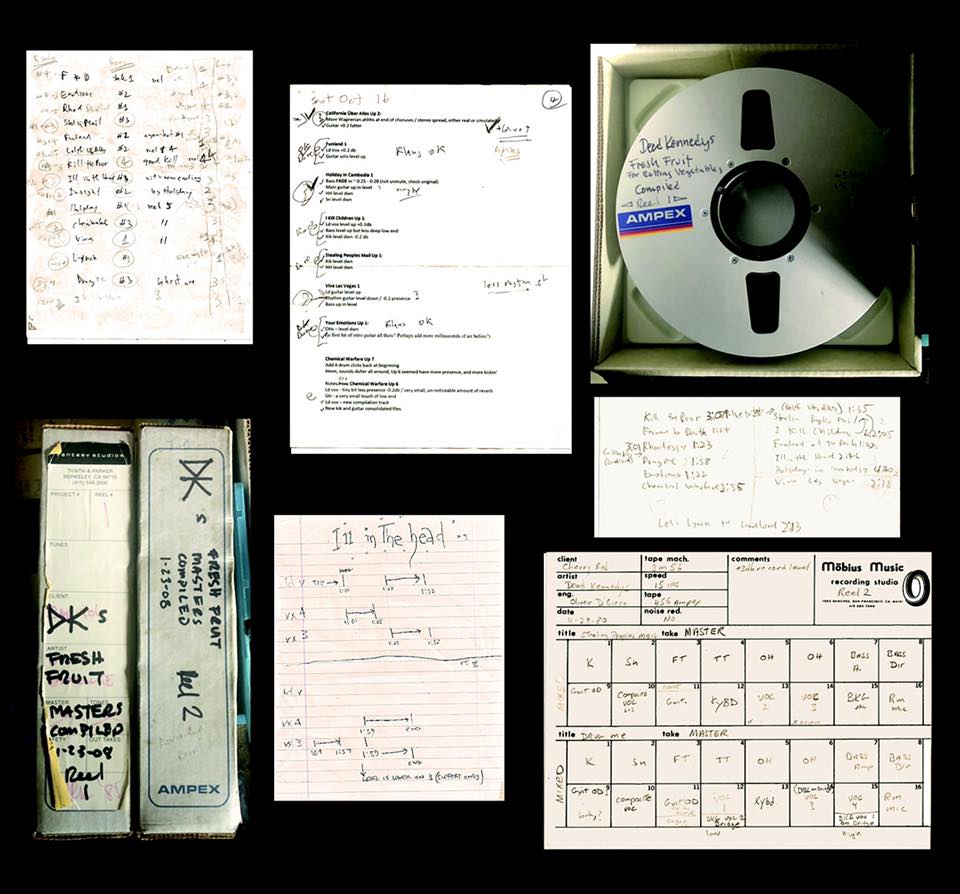
Did you hear anything cool that you forgot about or didn't know was on there?
Oh, yeah, actually. I mean, most musicians don't sit around listening to themselves, I hope. You know, we haven't listened to it for ages but we had to listen to it under a microscope and we actually were like, Oh, wow, we were doing pretty cool stuff we'd kind of forgotten. So yes, it was kind of fun to go like, whoa, that's cool, how'd we ever think of that?
Nice. Another question I have for you, it said in the liner notes that the album cost you guys six grand to record? Where the hell did you guys get a $6,000 budget back then?
Oh, well, that's interesting story. I got a studio for us to record "California Uber Alles" and from our band, our gig money, I started a bank account, so we paid for the recording. Then we paid for having the record pressed, the "California Uber Alles" single, and then we got talked into doing an East Coast tour and so we played Boston and New York and of course, we lost money on that tour because you know, we had like 40, 50 people show up.
But at the New York show there was a guy from Scotland named Bob Last from Edinburgh and he had a record label called Fast Product and they were a well respected independent label in England. On the label he had Gang Of Four, Human League and the Mekons. So he saw us and he called me up when we were back and said, I'd like to license this for England.
So it was like, okay, we'll put that out and then it turned into a big hit in England. I mean like, the first sort of underground punk band to hit in England. And then a guy called me and said, I'd like you to tour in England. So we said, sure and he called back and said, we can't tour on a single, how about if I find you money to make an LP? We said, sure and he went to Iain McNay and he was just starting Cherry Red Records. And actually the budget was $10,000 but my idea was like, I'm going to pay each each musician $1,000 Because this is the last money we're ever going to see from this [laughs].
And then we took the $6,000 and recorded the record and it just went way beyond our wildest dreams. And Iain McNay, he had Cherry Red Records I mean, it basically you know, it jumpstarted him, he had a huge publishing concern. He's very good at marketing. He was very good at marketing. He's a genius for marketing. So he knew how to sell records.
So, does Fast Product have anything to do with Faulty Products?
No that was in California. That was a complicated story. We had Alternative Tentacles Records and Iain McNay, since he paid for Fresh Fruit... he had the rights worldwide. So he licensed it to IRS Records in LA. IRS Records, it was Miles Copeland's label. He was the manager of the Police and he had all sorts of new wave bands, all sorts of groovy, good bands. The Cramps were on there.
Lords of the New Church.
Right. I remember going into the office and scoring LPs at their office. But it turns out that IRS was distributed by A&M Records, which was Herb Alpert and Jerry Moss's label and it turns out Jerry Moss was insulted by the name, he was a close friend of the Kennedy family.
So we got booted to Faulty, they created Faulty Products independent distribution because A&M didn't want to distribute the record. It wasn't just us, they had other records A&M didn't want to distribute.
Oh, interesting. Did you guys get paid with any of this licensing, when Cherry Red licensed it to IRS?
Oh yeah, Cherry Red has always been meticulous about paying. He's a good guy. And so was Bob Last, he was a good guy too. I mean, they were music fans, and they were honest, ethical businessmen. Perfect. We were lucky. There's some bands that, they got signed to labels and they were not at the right place at the right time.
Does it matter to you that of course Jello Biafra is not happy about this and is expressing it? Does that matter to you or are you just like, whatever, of course he's not happy about it?
Yeah, we expect him to say no, no matter what. I don't know, it's like I said before, how punk is an ad hominem attack? I mean, it's kind of like, it seems like he just has nothing better to do than sit around and think of bad things to say about the other band members. What's his problem? I mean, we're all great musicians.
Together, the sum was greater than the individual parts. I mean, it's LSD, Lead Singer Disease. Like I pointed out, you know, some of the things he says are lies and it's like, why is that? What's his problem? I mean, the reality is, it's the collaboration that made the DKs great and that's what Klaus, DH and I are good at, we collaborate. Two and two equals five.
Right, the chemistry of you guys, obviously, is was what made it awesome.
Yeah, chemistry. You know for us, the music is more important than one individual. For us three [laughs].
So, what's next for you guys? Do you guys ever talk about writing any new music?
Well, we did. We did some new songs on tour. The audience just kind of stood there and stared. But this happened to us back in the day, like on Plastic Surgery Disasters. We had a tour booked for Plastic Surgery Disasters and for technical reasons, the release got delayed. So we started the tour playing the Plastic Surgery Disasters songs, which are brilliant, by the way. [Laughs] And brilliant musicians playing it, by the way [laughs again].
But the audience just stood there and stared at us so we went back to playing the Fresh Fruit... setlist until the record came out. So it's kind of a common thing when you go to a rock show, a show with a headlining band, you kind of need to have heard the music before. It's not like going to the local club and like, you know, the middle band was like, "Oh, wow, they're really cool." But it's like, you didn't put your hard earned money to see that.
We tried that, you know, we played it and I mean, one thing I did find is when it's really fast without talking in between and then onto another song they kind of kept bopping. But it was just kind of like work and then it just kind of faded away. But the recordings exist, actually.
That's cool. I remember seeing Black Flag after My War came out and they would do like two or three old songs and mostly new stuff and audiences would get pretty PO'd but they never went back to playing the old songs very much...
Oh, I mean, ultimately, you know, there's all sorts of trappings and stuff, but ultimately, we're a good rock band and that's the reason we're really in it is to rock out. I mean, if we had come together in the Haight Ashbury in the '60s we would've been a hell of a good rockin' psychedelic acid rock band [laughs].
You know, we want something that's rocking, a little bit, you know, teetering on the rails, a little bit of chaos and energy and all that stuff. That's what punk rock was and that's what we wanted to create. We don't want to sit there and stare down the audience. That's kind of where you put the ego above the music. You know, I mean, the music needs to come first. Sometimes human behavior gets in the way.
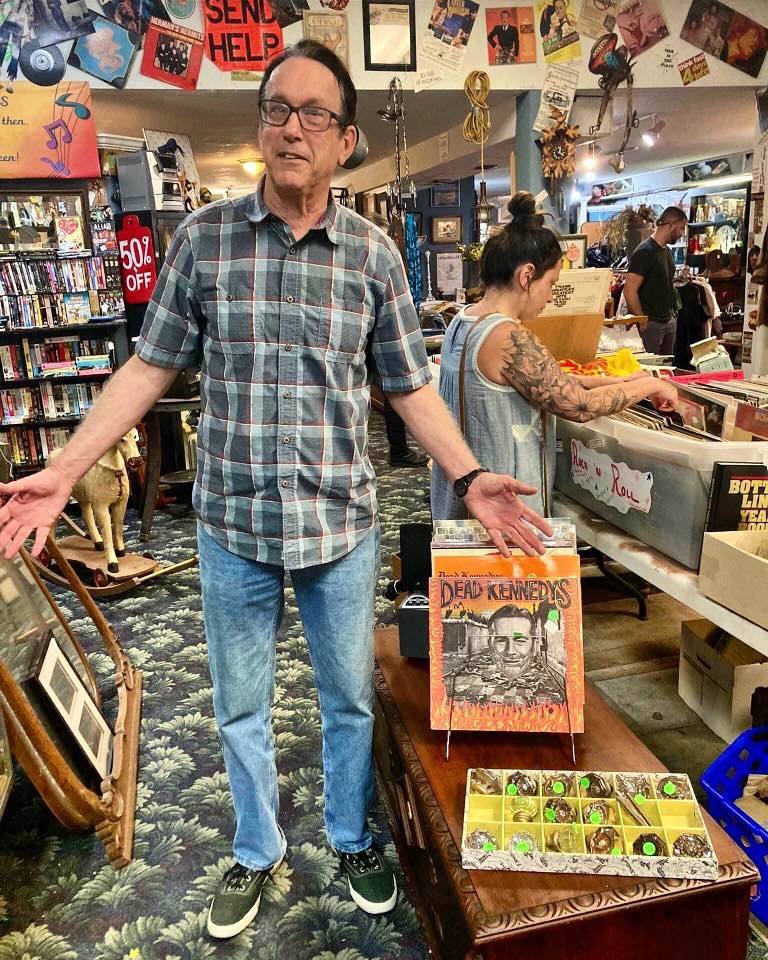
Gotcha, perfect, that's awesome. Hey man, well thank you very much for your time and the record sounds great, I was listening to it yesterday in my car.
Oh cool. I mean, the original still exists and I know some people fall in love with that and that's why it still exists. But this is just a different look at the same musicians playing the same parts and to me, you can kind of like, hear stuff better. It's less congested and you can still see what we're doing but you know, it's still the same rock music.
Yeah, definitely.
That's what's important. Okay, take care.
Alright. Thanks a lot, man have a good one.
Okay, bye
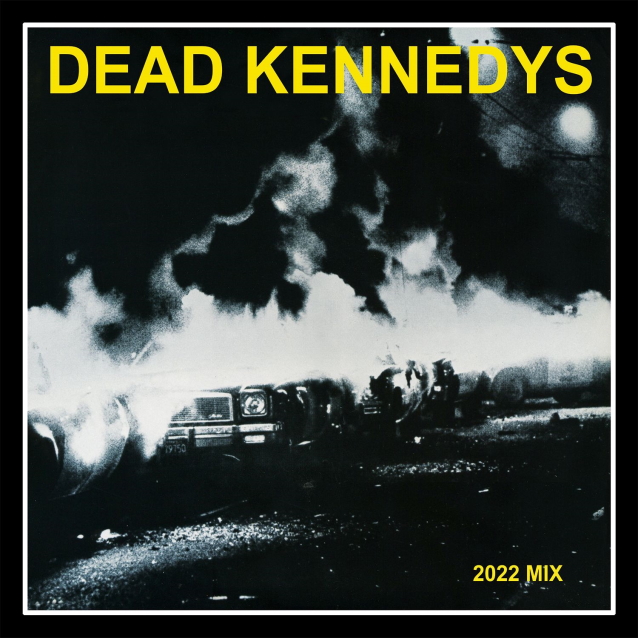
***
Fresh Fruit for Vegetables - 2022 Mix is available now. The digital version is up here.
***
Help Support What No Echo Does via Patreon:
***
Tagged: a hardcore conversation, dead kennedys

